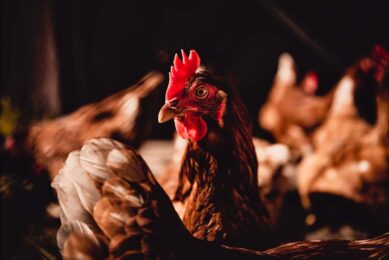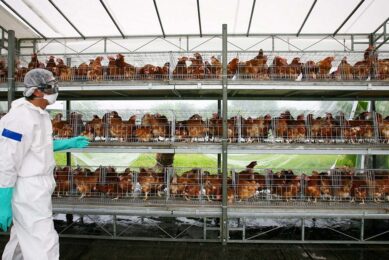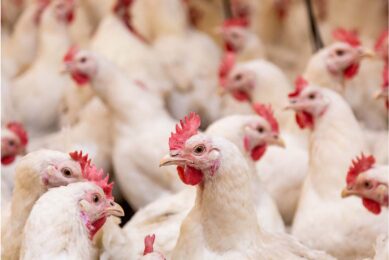DNA vaccines for H5N1 virus in development
Vaccines for the avian influenza H5N1 virus and DNA-based vaccines proven to be capable of providing protection for various H5N1 strains are in development by scientists at the Academia Sinica.
A team of researchers at Taiwan’s leading academic body have also discovered that once new virus strains are found, the strains’ genetic information can be incorporated into the vaccine database to produce new vaccines that can induce immunity against new strains of H5N1.
Hemagglutinin
The team, led by David Ho of the Rockefeller University and Chi-huey Wong of Academia Sinica’s Genomics Research Centre, started its research two years ago with the focus on hemagglutinin, or HA — a type of glycoprotein molecule that can be found on the surface of all H5N1 viruses and plays a vital role in the viral infection process.
After analysing hundreds of hemagglutinin samples that were collected from various H5N1 strains, an identical gene sequence — dubbed “Consensus HA” — were found on all specimens. The sequence was later genetically engineered to produce the prototype vaccines.
During experiments, lab mice that have been inoculated were found to develop immunity of various H5N1 strains, including the strains found in Vietnam, Indonesia, Turkey, and southern China.
Survival rates
“When infected by the Indonesian strain of H5N1, 80 percent of the subject mice survived, ” said Ting-jen Rachel Cheng of the Genomics Research Centre. “Meanwhile, 100-percent survival rates were found among all mice that were exposed to the other three strains.”
DNA-based vaccines, however, have one distinct drawback. “Based on the experiments (and) research done by other scientists, DNA-based vaccines are prone to elicit weak immune response, ” said Chen Ming- wei, a post-graduate student at National Yang-Ming University.
After further testing is completed by the end of 2008, the vaccine will be submitted to the U.S. Department of Health and the Food and Drug Administration as a new drug awaiting human trials. Once approved, the phase-I clinical trial in humans can be carried out.
Related Website
• Academia Sinica
Click here to receive World Poultry’s Free Newsletter
Hemagglutinin
The team, led by David Ho of the Rockefeller University and Chi-huey Wong of Academia Sinica’s Genomics Research Centre, started its research two years ago with the focus on hemagglutinin, or HA — a type of glycoprotein molecule that can be found on the surface of all H5N1 viruses and plays a vital role in the viral infection process.
After analysing hundreds of hemagglutinin samples that were collected from various H5N1 strains, an identical gene sequence — dubbed “Consensus HA” — were found on all specimens. The sequence was later genetically engineered to produce the prototype vaccines.
During experiments, lab mice that have been inoculated were found to develop immunity of various H5N1 strains, including the strains found in Vietnam, Indonesia, Turkey, and southern China.
Survival rates
“When infected by the Indonesian strain of H5N1, 80 percent of the subject mice survived, ” said Ting-jen Rachel Cheng of the Genomics Research Centre. “Meanwhile, 100-percent survival rates were found among all mice that were exposed to the other three strains.”
DNA-based vaccines, however, have one distinct drawback. “Based on the experiments (and) research done by other scientists, DNA-based vaccines are prone to elicit weak immune response, ” said Chen Ming- wei, a post-graduate student at National Yang-Ming University.
After further testing is completed by the end of 2008, the vaccine will be submitted to the U.S. Department of Health and the Food and Drug Administration as a new drug awaiting human trials. Once approved, the phase-I clinical trial in humans can be carried out.
Related Website
• Academia Sinica
Click here to receive World Poultry’s Free Newsletter
Join 31,000+ subscribers
Subscribe to our newsletter to stay updated about all the need-to-know content in the poultry sector, three times a week. Beheer
Beheer








 WP Admin
WP Admin  Bewerk bericht
Bewerk bericht